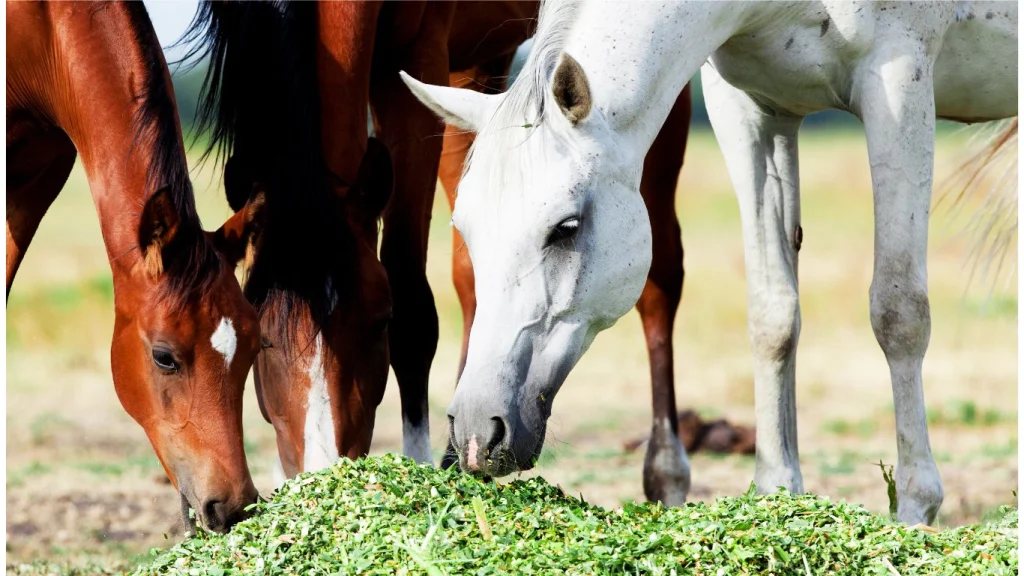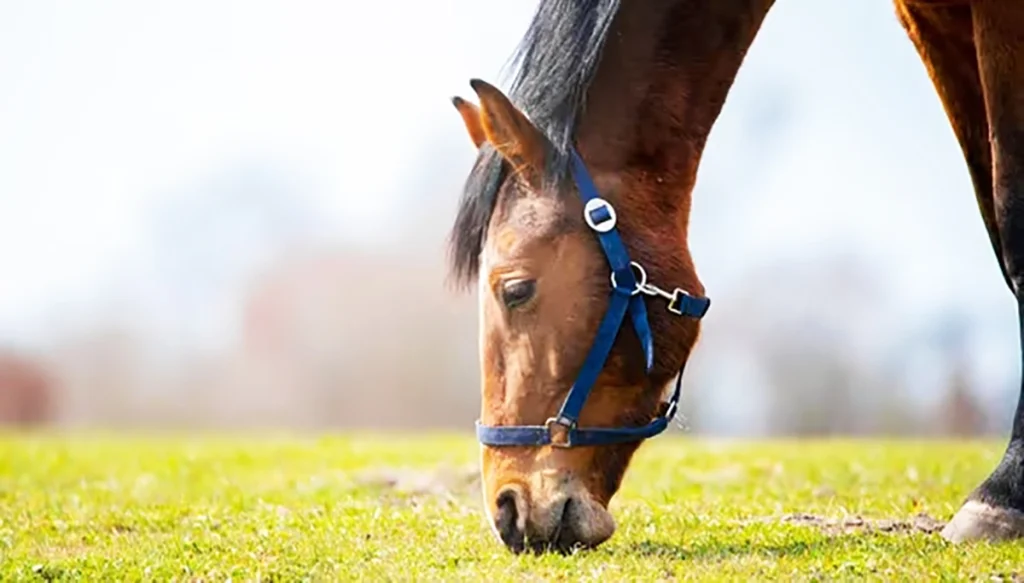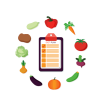The “Dieta del Caballo” is a guide to horse food. What a horse eats. As an all-inclusive guide that lists the most important parts of needs. What It Does Everything from seeds to vitamins and food plans.
What the horse eats The topics it covers, the book is horse. Gives useful information about diet. People who read this will learn how balanced horse diet is and how important it is. Has an effect on health, success, and happiness.
You can really get it. by giving in-depth descriptions of important food products. different internal processes and activities of the body. Describe what each ingredient does to help.
The guide is broken up into useful feeding tips, such as how to choose the right type of concentrate and how important grass is in horse food. Describes the aim and kinds of supplements.
Follow the dieta del caballo for eating. Only horse owners and managers can confirm this. Horse partners get a balanced meal that is made to fit their specific needs. Whether it’s for health reasons, performance, or care. For more visit the website The diet and weight loos.
Importance of proper nutrition for horses:
Horse health, fitness, and total with Dieta del Caballo. Getting the right nutrients is very important for staying healthy. Horses are herbivores, so they mostly eat things like hay and field grass.
Grazing isn’t the only thing that needs nutrients. like breeding, growth, and the use of energy. To help the body do its most important jobs. Proteins, carbs, fats, vitamins, and minerals for horses. It is important to get a proper amount of different nutrients, including water.
Brief Description of Key Ingredients of Food:
A horse’s food should have a few important things in it. Each is important for your health and success in different ways. The horse’s main food source is forage, which includes grass and hay.
Fiber and other nutrients are very important for gut health. Gives you vitamins, energy, and protein. Concentrates, like commercial feed and grain, are extra energy.
By putting minerals on top of food, Because they work or grow, these horses need a lot of energy. To take care of certain health problems or defects. It may be necessary to take supplements to help.
It’s important to understand and balance the different parts of a meal. The food that horses need to do their jobs well is provided for them. Whether as a pet, a sport animal, or a working animal.

Essential nutrients for horses Protein:
Protein is very important for horse muscle growth, repair, and body function. They have amino acids in them, and horses take some of them in. Some people can make it, but others have to get it from their food.
Carbohydrates:
As a horse’s main source of energy, carbohydrates are important. Gives your body the fuel it needs for many processes and tasks.
Fat:
In horse feed, fats, which are also called lipids, are a dense source of energy. It gives you more energy per gram than carbs do. For horses, endurance and efficiency are very important. It stops fat from forming, makes hormones, and dissolves in fat. A lot of what we absorb is due to vitamins.
Vitamins:
Organic substances called vitamins keep the horse’s metabolism in check and help with many other metabolic processes. Important for staying healthy. Fat-soluble vitamins are A, D, E, and K. Vitamins (such as vitamin C and B-complex vitamins)
Minerals:
Minerals are inorganic substances that help bones form, muscles contract, and nerves send signals. It’s like calcium, phosphorus, and magnesium are important for many bodily tasks.
Like zinc, copper, selenium, and potassium.
Electrolytes:
Electrolytes are chemicals that keep the balance of fluids and carry an electric charge. is a key part of how nerves work and how muscles contract in horses. Sodium is a common element. Minerals like magnesium, calcium, potassium, and chloride.
For horses, electrolyte balance is very important. Do a lot of intense exercise to keep from getting dehydrated. Put through high temperatures to keep working at their best.
Importance of Forage in Horse Diet:
Feeds like hay and grass are good for your digestive system. Important for keeping the horse’s normal feeding behavior going and making it happy. It gives you fiber, which is important for nutrition and gut health. Gut problems, like ulcers and colic.
Keeps trouble from happening. Forage also gives animals carbs, proteins, and vitamins. minerals among them. Offers important nutrients. Even though plant species. Like growing up. Depending on factors, in different amounts.
Type of forage (hay, pasture):
If you can’t find a fresh field, you can make hay from dried grass or beans. What horses eat when they don’t have much else to eat. Such as timothy, Bermuda, and other types of grass hay and bean hay.
comes in different forms, and each one has a different set of nutrients. Horses can eat green grass when they are in the pasture.
comes from natural sources and is high in nutrients. Encourages people to look for food. Climate, management, and the seasons affect the quantity and abundance of pasture.
Grains:
Horses need grains like oats, wheat, and corn to get energy. Grains have a lot of carbs and work well. Makes energy available for growth.
Commercial Horse Feed:
Carbohydrates, proteins, and vitamins that meet the needs of horses. Commercial feeds are made to have the right amount of all minerals.
They come in chunks, textured feed, and full feed, among other types. May be made for certain times of life or amounts of activity.
Purpose of Supplements:
Supplements make up for missing nutrients and are used to keep horses healthy or improve their performance. They might have minerals, vitamins, amino acids, or other good things for you in them. The base diet doesn’t give it to you.
Types of Supplements (Vitamins, Minerals):
There are water-soluble and fat-soluble vitamins in vitamin pills. (Vitamin C, B-complex vitamins) could be added. Mineral pills, on the other hand, contain important nutrients like calcium.
elements like phosphorus, magnesium, and rare elements. Like selenium, copper, and zinc. These pills might help. Horses get all the nutrients they need to be healthy and perform at their best.
Factors Affecting Horse Diet

Age:
Age is a big factor in figuring out what a horse needs to eat. how young horses, foals, and calves grow and change. Needs a lot of protein and energy to stay healthy.
With a lot of good things for you in it, like protein, calcium, and iron. Special food plans may need to be made. The care level for adult horses is usually at the beginning level.
When horses get older, their metabolism slows down, so they need more energy. To account for changes in oral health and the ability of the body to absorb nutrients. It might need changes to its food.
Activity Level:
How active a horse is depends on how much energy it needs. Horses were moving around in a mild to active way. Like a worker or efficiency fuel and muscle mass.
For upkeep, you need to eat a lot of energy. A light diet can help you avoid getting fat. Some horses that don’t have to work may need a low-calorie diet. Fatigue making sure the horse’s food is right for its amount of exercise.
Stopping problems like muscle tiredness or metabolic diseases from happening. Helps make sure that efficiency and energy balance are at their best.
Health Status:
what horses with different health problems need to eat. Such as metabolic syndrome, laminitis, or insulin resistance. To keep glucose and insulin levels under control and to keep weight under control.
You might need to make changes to your diet. Having problems with your stomach, like colic or ulcers. digestible feed to keep horses’ stomachs from getting upset. It may be necessary to follow a special diet with lots of small meals.
Talk to a doctor or a horse nutritionist. To help horses that have certain health needs. Making a good plan for a diet. Could help improve health.
Common Dietary Problems and Solutions
Obesity:
Horses often get fat, which is usually caused by giving them too much. Not getting enough exercise or a genetic tendency. Insulin resistance and laminitis caused by extra body weight.
It can cause a lot of health problems, like joint pain. A planned diet with a limited number of calories is used to control fat. Use food to block entry to green fields.
Increasing the amount of movement is part of it. using forage options that are low in energy, like grown grass hay. Horses stay healthy by doing regular training routines. Can help you get and keep up your physical health scores.
Malnutrition:
When horses don’t get enough or the right kind of food, this is called malnutrition. Because of this, there is a lack of important nutrients.
This could happen because of bad eating habits. One sign of not getting enough food is that the hair is in bad shape. Could lead to losing weight, performing worse, and having a weaker immune system.
Make the food better and change based on needs. includes adding powders and/or vitamin supplements to the diet. Find a horse dietician or a doctor to help you.
To make up for food shortages. A good fit for the best health healing. Can help you make a plan for what to eat.
Digestive disorders:
problems with digestion, like colic, stomach ulcers, and acidity in the hindgut. Can hurt the health and function of horses. Problems include bad food control and not getting enough fiber.
In order to keep stomach problems from happening. Set a regular time for feeding them. Giving them good food and using good feeding or control methods.
Don’t make quick changes. Like giving people smaller meals more often and clean water to drink. Include tactics that will help your gut health. and may help lower the chance of stomach issues.
Talk to a doctor or a horse nutritionist. To help with stomach problems and good gut health. Helps make detailed plans for how to handle things to stop trends.
Finally,
For horses’ health, getting and staying at the right weight is very important. the food of the caballo health and efficiency. Different nutritional needs and things that affect nutrients. By knowing the health of horse owners and caretakers. May put in place good eating habits to boost energy.
High-quality grass with the right amount of concentrate to meet horses’ nutritional needs.
It is very important to give them a healthy meal full of important supplements. Among other things, age, amount of exercise, and health are important.
Like getting regular dental care, getting rid of parasites, and getting vaccinated. Taking precautions is good for the horse’s health.
It helps the body absorb and use nutrients. Scores on body state, health, and achievement are all kept an eye on.
Along with horse trainers, vets, and other horse experts. Collaborative is a good food that is made to fit the needs of each horse.
What the horse eats Very helpful for making and keeping programs running. Horses can do very well if their diet is managed well. Can show the best ability.
FAQ:
Q: What are the primary ingredients of horse feed?
A: Forage foods like hay and grass make up most of a horse’s diet. Forage is good for your health and nutrition. Offers important nutrients and fiber.
Q: How much forage does a horse need daily?
A: Every day, horses need to eat 1.5% to 2.5% of their body weight. This amount might be different depending on.
Q: Can horses eat grain?
A: For sure, horses can eat corn, but only a small amount at a time. There are health problems that can happen when you eat too many grains.
Q: What are the signs of a balanced diet in horses?
A: A healthy body is a sign that a horse is eating well. Score for body health, coat that shines, and strong legs. Good amounts of power and behavior.
Q: Are supplements necessary for horses?
A: Certain food deficits or health problems of the horse can be fixed with supplements. You should only use them with the help of a vet or horse dietitian.
Q: How often should horses be fed?
A: Horses act like they would naturally when they are eating. A lot of small meals should be eaten during the day. Small amounts of concentrated food can be given, generally twice a day.
Q: Can horses graze year-round?
A: If the field is well taken care of, horses can feed there all year long. remains stable and gives enough food. Extra grass or feed may be needed in some places or at certain times of the year.
